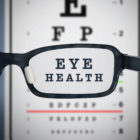Sleep disturbances are one of the top things my patients struggle with as they transition into menopause. Most adults need 7-9 hours of sleep. The National Sleep Foundation estimates 46% of women ages 40 to 54 and 48% of women ages 55 to 64 struggle with sleep. I think it is at least that many because most women don’t report their sleep problems to their health care provider. Women in perimenopause and menopause not only sleep less, they have more frequent insomnia symptoms and are more than twice as likely to use prescription sleeping aids than premenopausal women.
Too little sleep causes a whole lot more problems than just being tired. Women who sleep too little have decreased memory, increased irritability, and weight gain. Weight is affected because sleep is when the hormone leptin is produced. Leptin is responsible for causing a person to feel full after a meal. So less sleep leads to less leptin, which causes a person to feel hungry and eat more. Poor sleep also increases the hormone ghrelin, which is responsible for making you feel hungry. So poor sleep plays a double whammy on weight gain.
A lack of sleep has also been linked to an increased risk of heart disease, high blood pressure and diabetes. Poor sleep can also cause muscle aches, irritability, poor motivation, fatigue, lethargy, inability to concentrate and difficulty performing tasks. Sleep deficit causes major problems. There are many reasons why menopausal women struggle with sleep.
First is low estrogen levels, which shorten rapid eye movement (REM) sleep so sleep becomes less restful. It’s also hard to sleep through a hot flash or having to get up to go to the bathroom to urinate. Other causes of poor sleep include pain from arthritis, depression, stress and anxiety. Obesity also contributes to poor sleep. According to the National Sleep Foundation, 77% of obese people report difficulty sleeping. The extra fat on the chest and breasts makes it more difficult to breathe at night. This can contribute to Sleep Apnea. Usually a person with sleep apnea snores very loudly because their tongue pushes back in their throat. During the night, they can stop breathing, and that causes too little oxygen to go to the brain. If you snore loudly at night or wake up tired, talk with your doctor about this problem.
Women in menopause are also more likely to have Restless Leg Syndrome where their leg jerks suddenly and wakes them up. Also, women who are depressed or anxious often wake up once they are asleep. There are many medications available to help.
Lifestyle Changes to Improve Sleep Without Medications
• Exercise regularly – but not right before bedtime
• Go to sleep at the same time each night
• Use room darkening shades and try to limit noise
• Take a warm bath to loosen tight muscles
• Avoid spicy foods right before bed
• Limit smoking, caffeine and alcohol after 6 pm
• Keep the room cool and well ventilated
• Listening to relaxing music, breathing deeply and/or meditation
• Psychotherapy – cognitive behavioral therapy can be very effective
Until next time,
Dr. Mache Seibel, Founder of My Menopause Magazine http://bit.ly/MyMenoMag
Professor, University of Massachusetts Medical School
(617) 916-1880
PS: Find more information of this type in My Menopause Magazine, available for the iPad in the Apple Newsstand. http://bit.ly/MyMenoMag
* Please Like and share with your friends.










